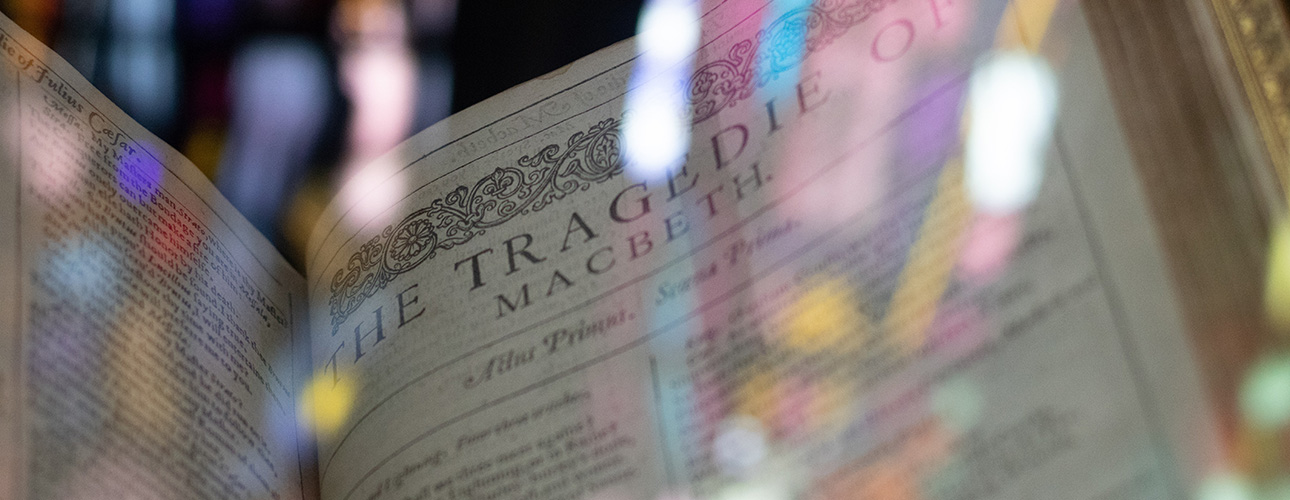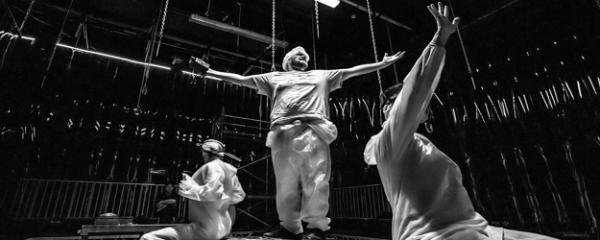‘Performing Restoration Shakespeare’ is an international and multidisciplinary research project that brings together scholars and practitioners in theatre and music to investigate how and why Restoration adaptations of Shakespeare succeeded in performance in their own time (i.e., 1660-1714) and how and why they can succeed in performance today.
The research has generated significant cultural impact, influenced artistic programming at major classical theatres, pioneered a successful new model for scholar-artist collaboration, created unique audience experiences, inspired a ‘critics debate’ in a major USA newspaper, and generated substantial revenue.
Research Challenge
EXPLORING THE MANY PERFORMANCE DIMENSIONS OF SHAKESPEARE
Up until now, much of the existing research in this area had focused on textual adaptation, despite the fact that Restoration Shakespeare was a complex theatrical experience that integrated song, music, dance and acting.
Queen’s researchers sought to correct this imbalance by focusing on the performance dimensions of Restoration Shakespeare and by forming a community of scholars and artists who together undertook archival study, ran studio-based workshops, and created public performances.
Our Approach
WHAT IS ‘PERFORMING RESTORATION SHAKESPEARE’
‘Performing Restoration Shakespeare’ is a AHRC-funded international and multidisciplinary project that investigates how Restoration Shakespeare used to be performed, and how it can be performed today. It brings together Queen’s University Belfast, Syracuse University, the Folger Shakespeare Library, the Globe Theatre, and the Shakespeare Birthplace Trust.
Research on this project was led by Professor Schoch, a scholar-artist with expertise in theatre historiography and Shakespeare in performance. Professor Schoch led research teams to analyse how Restoration theatre’s commitment to both continuity and innovation was quintessentially expressed in its multimedia adaptations of Shakespeare.
The project proposed a dynamic historicist alternative to current performance methodologies aimed at reviving 'original' styles or conventions. Rather than seeking to recreate conjectured period styles, Queen’s researchers set out to create fresh theatrical experiences that are meaningful to audiences today.
The method was first tested in a workshop on Restoration Shakespeare at the Folger Shakespeare Library in 2014. In January 2017, a team led by Schoch embarked on a larger project, ‘Performing Restoration Theatre’, which was funded by the AHRC.
In both 2017 and 2019, the team rehearsed and publicly performed scenes from the Shadwell-Dryden-Davenant The Tempest in the Wanamaker Playhouse in collaboration with the Globe. In 2018, the same team partnered with the Folger on a full production of Davenant’s Macbeth, a research process captured in documentary videos. The team rebalanced current scholarship by interrogating Restoration Shakespeare as complex theatrical experiences possessing their own artistic integrity. Through iterative creative practice, they developed a unique model of intensive scholar-artist collaboration that used contemporary rehearsal and performance to better understand the demands that Restoration Shakespeare makes on artists today. In so doing, they challenged dominant ‘Original Practices’ methods that reinstate ‘period’ style.
“This production is unmissable. There is no more efficient way to state it than that. Never before, to Folger’s knowledge, has Davenant’s Macbeth been staged, and it is unlikely to be a popular choice in the future given that precedent. The opportunity to experience not only a stunning production, but a once-in-a-lifetime chance to experience Restoration English theatre as it might have been, cannot be passed up.”
- Claudia Bach, Reviewer, TheatreBloom.com
What impact did it make?
A NEW MODEL OF SCHOLAR-ARTIST COLLABORATION, PROVIDING UNIQUE AUDIENCE EXPERIENCES
Impact on repertoire and theatre revenue
The research inspired and enabled a major international theatre company—the Folger Theatre, Washington, DC—to perform Restoration Shakespeare for the first time in its fifty-year history. Folger Theatre is the arts division of the Folger Shakespeare Library, the world’s preeminent Shakespeare collection.
Macbeth generated $300K in box-office income. This was higher than usual for the Folger because the production achieved a capacity of 120% as opposed to Folger’s average capacity of 95%. In addition, in 2016, the Kennedy Center in Washington DC and the Napa Shakespeare company in California jointly produced Restoration Measure for Measure, starring Derek Jacobi. Program notes reference Schoch’s 2014 workshop as the inspiration
Impact on the creative process, staging and artists
Macbeth successfully pioneered a new collaborative model by having a scholarly team embedded in the full rehearsal process, a new practice for the Folger. In an interview with the Broadway World theatre website, the production’s director, Robert Richmond, summed up the experience of working with the research team and with the Folger Consort musical ensemble which was also involved in the production:
The international team of scholars collaborating with us throughout the production process offers a unique and historic opportunity for the Folger Shakespeare Library, Folger Theatre, and Folger Consort to come together on a scale that has never been done before … I, along with our extraordinary creative team, have been working to uncover the dynamics of the unique structure of the original Restoration performance and to make the play as exciting for a modern American audience as it was for Londoners in the 1660's.
Impact on public awareness and understanding
The sold-out Macbeth production was seen by more than 6,300 people. Because Restoration Shakespeare is now rarely performed, the production gave audiences a unique experience, affirmed in The Washington Post's review of the production which hailed it as a ‘world premiere of sorts’ and said it offered a ‘rare glimpse of a nearly forgotten performance style.’
Our impact
Impact related to the UN Sustainable Development Goals
Learn more about Queen’s University’s commitment to nurturing a culture of sustainability and achieving the Sustainable Development Goals (SDGs) through research and education.








